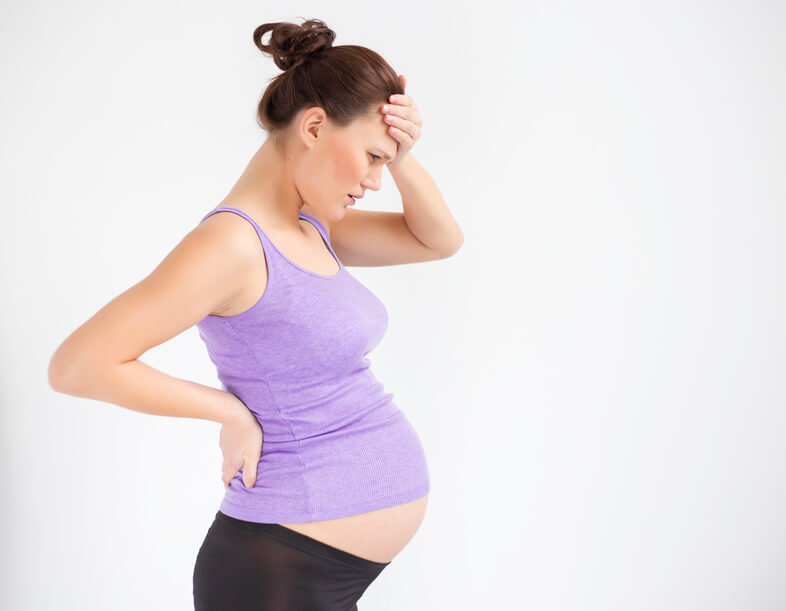Pregnant and Post Natal Chiropractic Care

Pregnancy is a time of change, as your belly grows, your body adapts in order to cater for a new life.
With this change, there are spinal changes that occur too. Your hips move forward and your lower back curves increase to compensate. These changes mean there is more stress added to your nervous system. As a result back pain and pelvic discomfort during pregnancy is common.
Regular chiropractic care during pregnancy stimulates the nervous system, reducing the stress on the body, and enabling proper functioning of systems, thus providing the best possible environment for the growth for your little one.
How Can Chiro Motion Chiropractors Help During Your Pregnancy?
At Chiromotion Chiropractors, we understand that every pregnancy is different and comes with its own set of challenges. Our approach has always been about your overall well-being.
As such together we create a personalised plan for you, so that your body has the best opportunity to thrive throughout your pregnancy. This will help make your pregnancy a more relaxing and healthy experience, so you can focus on enjoying this phase of your life, not only for yourself, but also for the little one on the way.
Changes To Your Body During Pregnancy
Pregnancy is a beautiful and amazing part of life, but it does come with some challenges. One of our key findings over the years has been the lack of information regarding the link between Chiropractic care and Pregnancy and the difference it can make not just to your pregnancy but to your overall well-being Within this section, we will aim to understand the changes that occur within your body during pregnancy, how these changes can affect you and your baby, and the benefits of chiropractic care during pregnancy.
As we all know, pregnancy means your body will go through a lot of changes. During pregnancy, up to 50-80% of women report having back pain (1) and one-third of pregnant woman claim lower back pain was the most significant problem (2). Most women state that they have discomfort in the beginning of pregnancy and as it continues, the pain becomes worse to unbearable. Research shows lower back issues are commonly felt between the second and third trimester, but 20% of women start to experience changes as early as 16 weeks.( 4)
The Centre of Gravity Change
This is due to the changes in the musculoskeletal system and the changes that occur in the pelvis to accommodate for baby growth. As pregnancy continues, your biomechanics has to adjust. It is normal to gain between 9-18 kilograms throughout pregnancy. This increase in load changes the centre of gravity (COG) for mums which means the pelvis has to shift to make more room for the baby. This results in the lumbar spine (lower back region) increasing the curvature of the spine (hyperlordosis), which therefore increases the stress placed on the structures (bone, muscles, ligament, tendons) of the lower back. (3)
This loading/compression of the structures in the lower back can result in:
- Pain
- Sciatica (lower back pain)
- Bladder control
- Sleep disturbances
- Altered balance and gait cycle (The way your walk)
- Altered biomechanics
- Reduced Range of Motion.
- Other associated issues
Due to the change in your centre of gravity, your spine is forced to go through changes. These changes alter the biomechanics of your spine, especially the lower back and pelvis area. Approximately 50% of women experience lower back issues not during but also after pregnancy. These could be from:
- Weakened abdominal muscles. Throughout pregnancy, your uterus expands, weakening the abdominal muscles, therefore increasing the load on the lower back area.
- Delivery. Labour can be a long and exhausting process and if your pelvis isn’t moving properly, it adds a lot more stress throughout the lumbo-pelvic region (lower back and hips).
- Extra weight and change in centre of gravity. With altered biomechanics of the pelvis and surrounding structures, it could put extra pressure on your back.
- Increase in hormones. During pregnancy, hormones such as relaxing and progesterone is released. These hormones cause loosening of the ligaments, sarco-iliac joints (bone) and muscles. After birth, these hormones are still in your system, and as they reduce, the stress on your body increases which can lead to back issues.
- Bad posture.Your posture changes when pregnant, which alters your biomechanics. This can lead to increase stress in the lower back, pelvis, and other areas in the spine.
Chiropractic Care During Pregnancy
The practice of chiropractic care focuses on the relationship between the body’s structure (body/spine) and the function (coordinated by the nervous system/brain) and how this relationship affects the preservation and restoration of health.
The chiropractic approach is to regard the body as a whole system comprising of nerves, muscle and bone (neuromusculoskeletal) in which stresses in the body structure are removed, so that the pressure in the body’s nervous system can be alleviated and general health of the body can be restored (5).
In pregnancy, the goal of chiropractic care is to balance the pelvis and relax the corresponding muscles and ligaments to reduce the stress built up by your body’s changes. By removing the stress throughout the body, pregnant women can benefit from:
- Increased strengthening of abdominal muscles
- Increased strengthening of pelvic floor muscles and improved bladder control
- Decreased pain during labour
- Decreased lower back pain during pregnancy
- Reduced sciatica/referring symptoms
- Improved biomechanics and increase in range of motion in lower back and pelvis
- Increased relaxation in the ligaments and muscles provide a better environment for your baby to grow, enabling a more relaxed pregnancy
Improved function throughout the spine with chiropractic adjustments throughout pregnancy helps reduce the stress and interference in the nervous system. This enables your body to adapt and manage the physical stresses that come with pregnancy.
